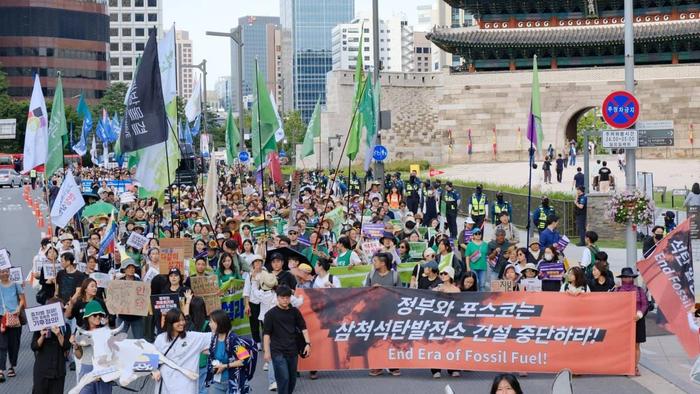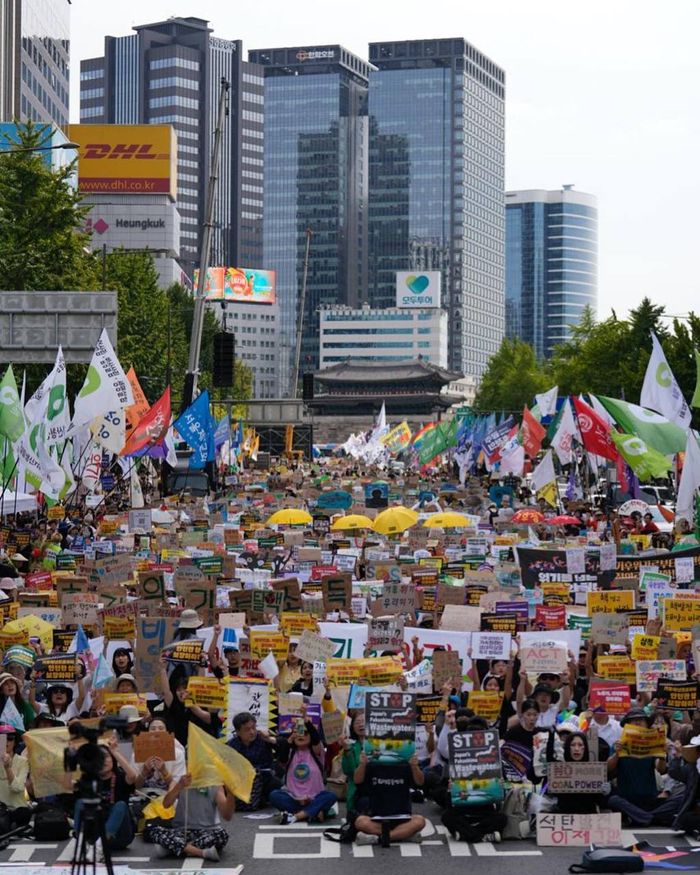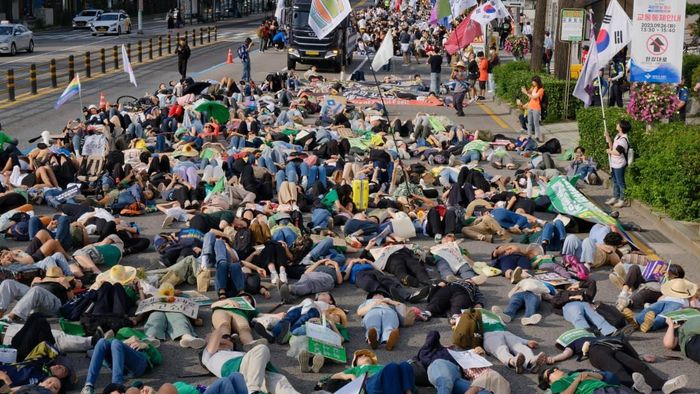
30,000 South Korean workers and citizens, march for climate justice in Seoul
2023년 9월 23일
- More than 600 organizations and 2,500 people organized the march
- Protested against the government that is irresponsible in responding to the climate crisis and turns a blind eye to climate injustice
- Demanded an end to nuclear and fossil fuel, a just transition, expanded public transportation
- Condemned destruction of the ecosystem
On September 23, more than 30,000 workers and citizens held a march on Sejong-ro in Seoul, South Korea, to demand equal and dignified life for all in the era of climate disaster. The march was preceded by activities such as open mic performances. Organisers set-up booths to engage with the participants and create a lively environment. The march started from 2:00 p.m. Participants strongly criticized the regression of the current Yoon Seok-yeol government's climate policy and demanded accountability for climate disasters, suspension of nuclear power generation, just transition from fossil fuels, expansion of public transportation, and suspension of ecologically destructive projects. During the march, participants also held a 'die-in performance' to warn of the risk of extinction due to the climate crisis.
The march was the culmination of a popular climate movement in South Korea that has been in full swing since 2019. in 2022, the Climate Justice March was held in Seoul on September 24 with more than 30,000 participants. This year's 923 Climate Justice March was a strong voice of criticism against the regressive climate policies and deepening inequality in all sectors of society under the Yoon administration over the past year. It also called for the need to overcome the capitalist socio-economic system centered on growth and profit that is causing the climate crisis. The event was part of a series of global actions for climate that have been held every September since 2019 around the time of the United Nations General Assembly.

The march carried the slogan "People Power to Overcome the Crisis!" and was centered around five main demands and 14 specific asks to the government that should be prioritized at this time. The five main demands of the march were
- ensure everyone's right to live with safety and dignity in the time of crisis;
- transition away from nuclear power and fossil fuels, and move towards public-led renewable energy and ensure worker’s livelihood;
- stop privatizing railways and expand public transportation to ensure the right to mobility for all;
- stop constructing new airports and developing national parks, which are detrimental to the ecosystem and climate crisis;
- hold accountable the mega polluters like multinational corporations and the wealthy responsible for climate crisis. Listen instead to the voices of those on the frontline of the crisis.
Speakers at the rally included members of the Osong Tragedy Task Force (14 people were trapped in an underpass during heavy rains and lost their lives), coal power workers, and anti-poverty activists, among others. In addition, one of the railroad workers who recently went on strike, an environmental activist who was in danger of being detained for protesting the Four Rivers Project (which caused environmental destruction by installing beams on major rivers), and a Japanese anti-nuclear activist who came to Korea for the Anti-Nuclear Asia Forum, spoke about the climate and ecological crises. The 923 Climate Justice March Organizing Committee, which held the march, included more than 600 organizations from all walks of life, including labourers, farmers, women, people with disabilities, animal rights activists, environment activists, and religious leaders. It also had more than 2,500 individual organizers.
The number of participating organizations is the largest in the history of climate marches. In addition, the 923 Climate Justice March was attended by people from all over the country by bus or train, and those who could not come to Seoul held rallies in their respective regions.

